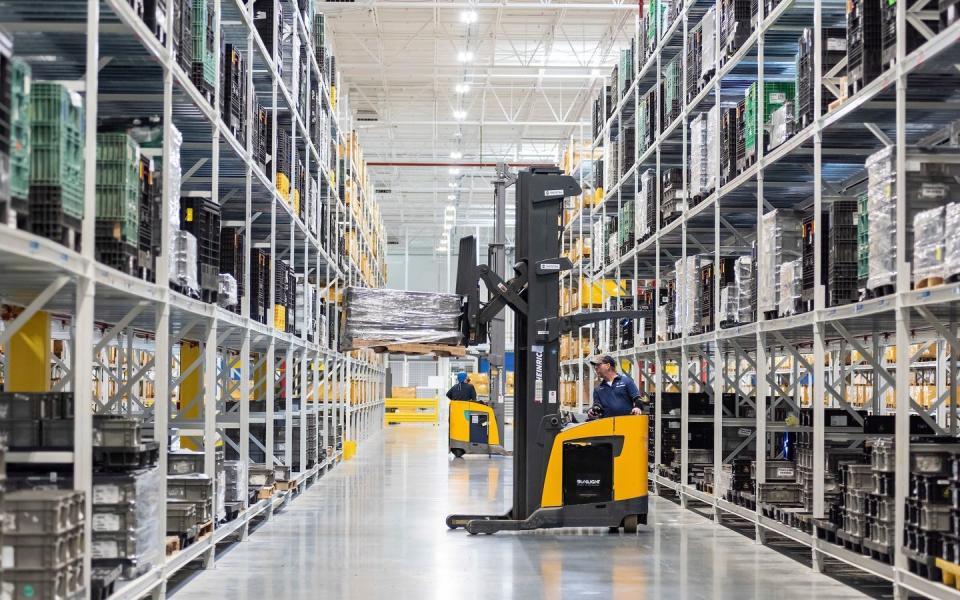Pandemic Hits Supply Chain, Costing One BMW Customer Dearly

Alex Magliozzi, of Brooklyn, signed a three-year lease on his 2021 BMW M340i (pictured above) in August 2020, but he hasn’t driven the car since a minor accident this past June required a new steering rack.
There are 20 vehicles ahead of his, also waiting for a steering rack. Based on current flow of replacement parts, a new rack might be available next summer.
Magliozzi’s lease ends in August 2023, and he has to keep paying about $750 a month for a car he can’t drive.
Car dealer lots are beginning to fill up again with new vehicles as the worst of the COVID-19 pandemic global supply chain shortages appear to be over. Car and truck prices are finally leveling off, and new vehicle inventories have been fairly steady since January.
Yet like the coronavirus itself, problems linger from the auto industry’s severe supply chain shortages of 2020-2022. Alex Magliozzi, of Brooklyn, signed a three-year lease on his 2021 BMW M340i in August 2020. All was well until the car “was involved in a minor accident” this past June and needed a steering rack.
That should have taken the Bimmer out of commission for weeks. Magliozzi’s dealer, BMW of Manhattan, told him otherwise. “There are no steering racks to be had, and there won’t be for months,” the dealership told him.
By September, two-and-a-half months after the M340i was towed to BMW Manhattan, its repair shop told Magliozzi they were shipping in two replacement steering racks per month. There are 20 vehicles ahead of his on the steering rack waiting list (which total a nationwide backorder of 92 steering racks as of late Thursday, according to the dealership). At that rate, there should be a rack available for the M340i about July of 2023. Magliozzi’s lease ends in August 2023. The dealership parts department is not estimating when the rack will arrive for Magliozzi’s car.
“So I am paying lots of money for a car that I will probably never see again,” he says. About $750 per month, in fact, or roughly $9750 from last July to next August for the privilege of driving a rented Chevy Malibu (provided by BMW North America).
Magliozzi says neither BMW Manhattan, nor its owner, the automaker’s importing arm, BMW USA, will let him out of his lease early. This is no different from auto leases from any other company, unfortunately, though Magliozzi is the consumer-victim of odd circumstances. At least he has no chance of exceeding the 30,000-mile limit on the three-year lease—the car had about half that on its clock at the time of the accident.

The supply shortage has affected mostly BMW USA production, a company spokesman said, and not spare parts for vehicles needing repair. Magliozzi says the dealer’s service department told him some customers were waiting months for brake pads.
That doesn’t help Magliozzi. “I’m living a Kafkaesque supply chain experience,” he says.
His late father, Tom, and his uncle, Ray—“Click & Clack, the Tappet Brothers”—would have called it, on their long-running National Public Radio show Car Talk, a “tale of woe and intrigue.”
Alex Magliozzi asked Autoweek whether we know of any automakers that have better handled the supply chain problems caused by the global pandemic (and Russia’s invasion of Ukraine), and we’ve checked with auto analysts, with no positive response. Toyota USA has often been cited as having handled the shortages better than most, though Lexus has taken a bigger sales hit in the US, indicating it has had better success with its mostly North American-assembled mainstream Toyota-brand models.
Have you had a similar tale of woe and intrigue trying to obtain critical parts for your car or truck, especially during COVID? Or have you had unusually good luck in these crazy times? Please comment below.

 Yahoo Autos
Yahoo Autos 